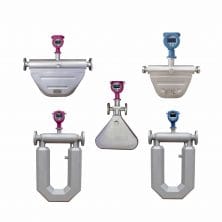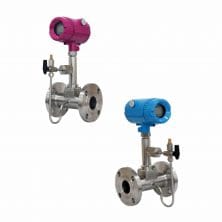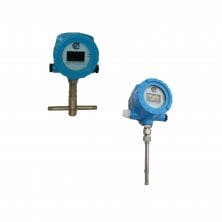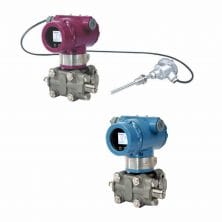Mass Flow Meters
Accurate and Reliable Mass Flow Meters for Industrial Processes
Mass flow meters are essential tools used in various industrial applications for the accurate measurement of fluid flow rates. They provide critical data that enables operators to optimize their processes and achieve maximum efficiency.
Mass flow meters are devices that measure the mass of a fluid passing through a pipeline or system. They work on the principle of thermal, Coriolis, or differential pressure, depending on the type of meter. These meters are highly accurate and can measure the flow of both gases and liquids. The Importance of these meters In industrial applications, the precise measurement of fluid flow rates is crucial for optimal process control. Accurate flow rate measurements are necessary for maintaining product quality, preventing equipment damage, and ensuring safety. Mass flow meters provide reliable and accurate flow rate readings, allowing operators to make informed decisions and maintain consistent process conditions.
One of the primary benefits of mass flow meters is their high level of accuracy. They provide precise and consistent measurements, even under changing process conditions, which is essential for maintaining product quality and consistency. They are also highly reliable, durable and designed to withstand harsh operating conditions, such as high temperatures and pressures, making them suitable for use in a wide range of industrial applications.
In addition to their accuracy and reliability, these meters offer several other benefits. They are easy to install and require minimal maintenance, which can save time and reduce operating costs. They also offer real-time data logging and monitoring capabilities, allowing operators to quickly identify and address any issues that may arise. In conclusion, mass flow meters are essential tools in various industrial applications. They provide accurate and reliable flow rate measurements, which are necessary for maintaining product quality, optimizing processes, and ensuring safety. With their high level of accuracy, durability, and ease of use, mass flow meters are a valuable investment for any industrial process.
ALCM CORIOLIS MASS FLOW
Coriolis Mass Flow
⅛"~12" (3-300mm)
Liquids and Gas
-40~300°F (-50~150°C)
+/-0.1,0.15,0.2 and 0.5%
Any
3600PSI (25Mpa)
SS304, 316SS 316L
4-20mA, pulse, MODBUS, HART
ANSI, DIN, JIS, Wafer, Sanitary, Threaded
All industires, custody transfer, multi-outputs (water cut, density, temperature, mass and volume and many more)
ALVT VORTEX MASS FLOW
Vortex Mass Flow
½"~12" (15~300mm)
Steam, Liquids and Gas
-40~662°F (-30~350°C)
1.5% gas/steam, 1% liquids
1 to 10 cst
920PSI (6.4Mpa)
SS#304 std., SS #316 opt.
4-20mA, pulse, MODBUS, HART
flanges (ANSI, DN, JIS)
Full compensated mass flow, no need to adjust output due to changes in pressure and/or temperature
ATMF THERMAL MASS FLOW
Thermal Mass Flow
¼"~unlimited (6mm-unlimited)
All gases
-23~482°F ( -5~+250℃)
1% of reading plus 0.5% FS
Not Applicable
1000PSI (69 bar)
SS #316
4-20mA, pulse, MODBUS, HART
NPT and flanges (ANSI, DN, JIS)
Any gas measurement requiring both standard volume or mass
ALDPT-MV MULTIVARIABLE DP
Multivariable DP
Unlimited
Gas, Liquid, Steam
-22 ~+480°F (-30~ +250°C)
±0.075%, ±0.1%
Any
290 PSI ( 0 -2Mpa)
316L, HC, Tan (Tantilum)
4~20mA DC with keystroke and HART, MODBUS
1/4“-18 NPTF and 7/16"-20 UNF, 2 -5 ways valve manifold for primary DP flow element (Acone)
Where multivariables such as flow, DP, temperature, mass flow, etc. used with Acone primary element flow meter



